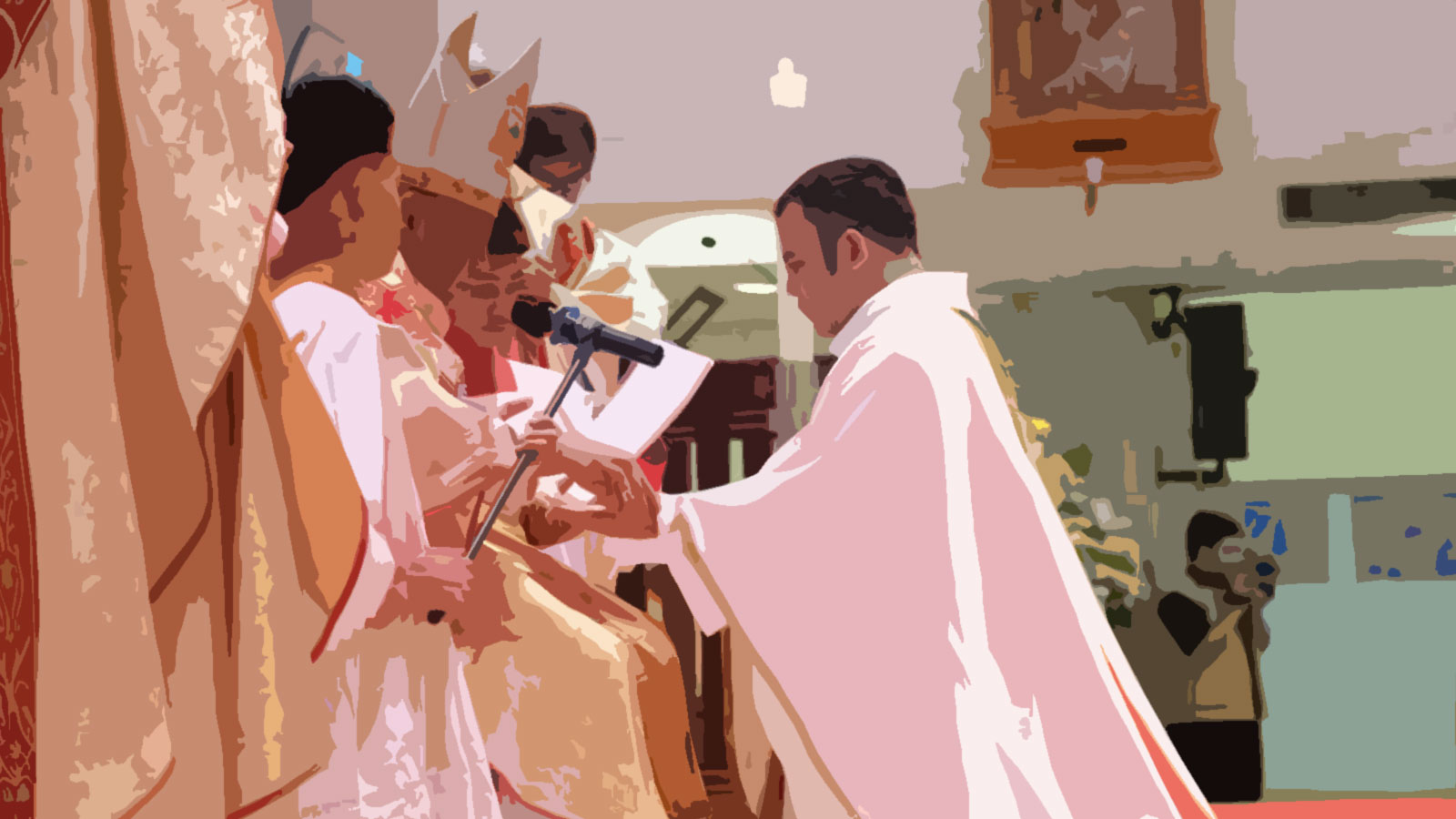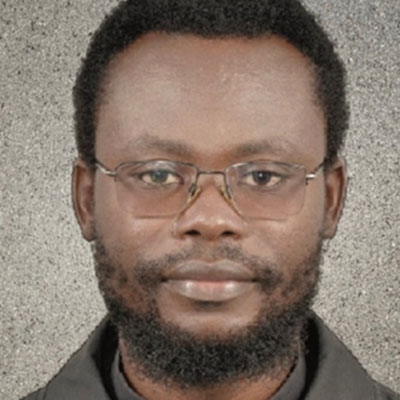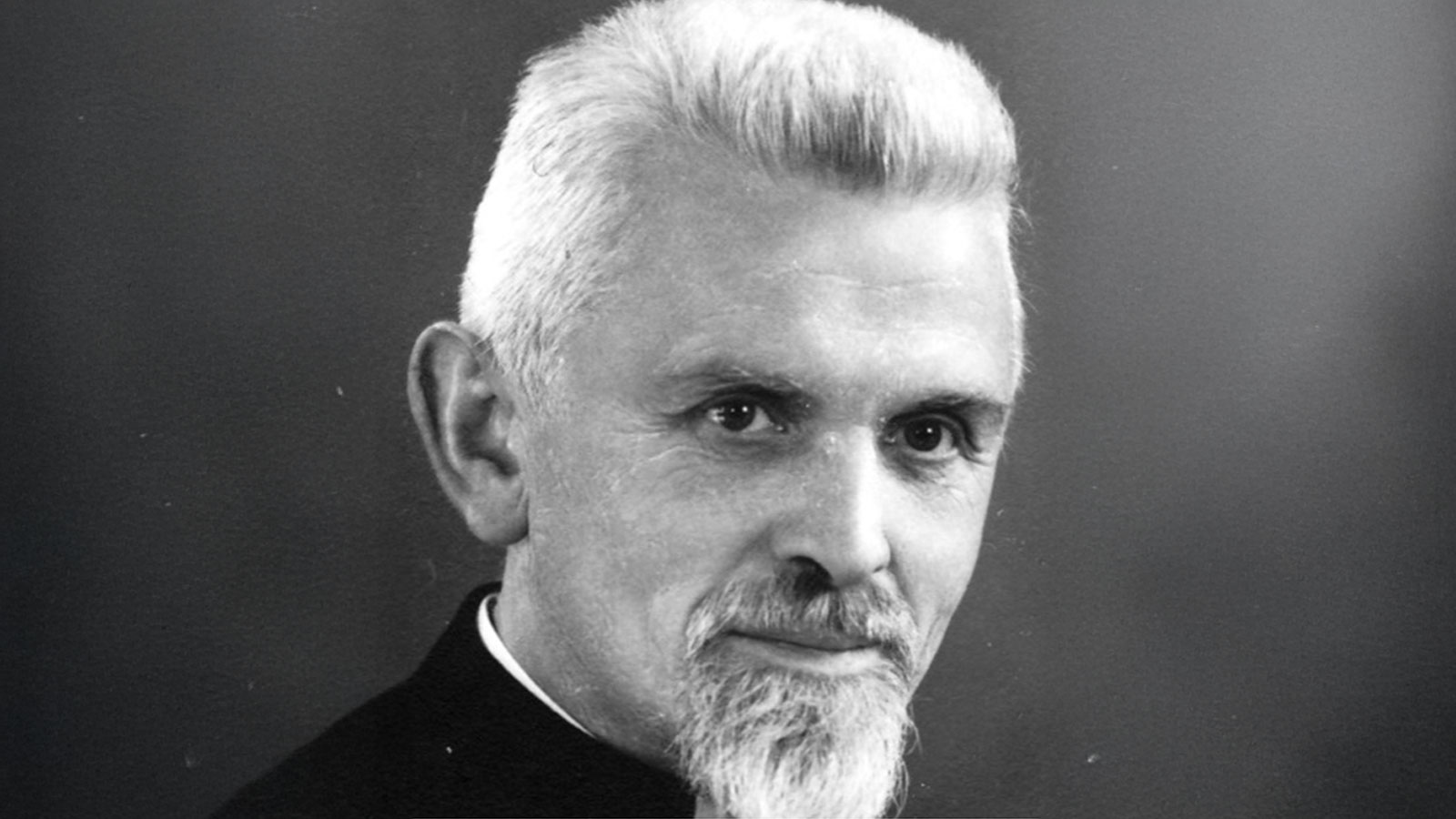BLESSED!
- IN THE FRONTLINE
- Hits: 8246
 By Ronald Magbanua, cicm
By Ronald Magbanua, cicm
Missionary in Mongolia
An Experience to be in Service during the Visit of Pope Francis to Mongolia
"Taste and see because the joy and goodness of the Lord are not fleeting."
I felt very excited upon hearing that the Pope was coming to Mongolia. In 2003, Pope John Paul II was scheduled to go to Mongolia. However, due to unfavorable circumstances, the visit was cancelled. Almost everyone then was ready and eagerly waiting for Pope John Paul’s coming: the entourage, the news agencies, etc. I was involved in the preparation then because I lived with the late Bishop Wens in the Bishop’s House.
This time, I told myself: “What is important is that the Pope will come, which is already enough for me. I am already satisfied with it. I do not even need to get closer to him.” But the confreres told me I could be near or seated near the pope as the local superior. I replied to them that there was no need for that. His coming to Mongolia is already a blessing and a privilege, and I will already be delighted.
As a member of the Prefecture's Mission Council and a Parish Priest, I was well informed and took part in the preparatory committee. I saw how immense the work that needed to be done. I committed myself to all the work entrusted to me and to all the areas that needed my help. I was part of the Family Commission, which oversaw the decoration of the Cathedral, the House of Mercy (a shelter blessed by the Pope himself), and the altar for the Pope’s Public Mass. Along with the other commission members, we cleaned the surroundings of the Cathedral, planted flowers around it, put up tarps, and ironed the vestments of the bishops and cardinals.
Many pilgrims came from many countries in Asia. Some confreres also came for the Pope’s visit, including our Superior General, Charles Phukuta; our ASI Provincial Superior Antonius Harnoko; Gilbert Sales, who is one of the pioneers of the Mongolia Mission; Rene Cabag, RP Vice-provincial Superior; and André Aboudi from Cameroon. I humbly offered to pick them up from the airport with other pilgrims. Thanks to the help of Jay Mark Ame, we were able to welcome them and offer them our community hospitality.
The time for the Papal visit was nearing, and the plan had yet to be finalized. The Vatican Security and the State Security kept changing parts of the plan. We could only understand that they were concerned about the safety of the Pope.
The day, September 1, 2023, came. We were all excited for his arrival. I was asked to be at the airport to welcome the Pope, but I did not go. Instead, I joined and stayed with our parishioners along the road. While waiting for the Pope, I had the great privilege of being approached by the pilgrims for the sacrament of confession. Right there on the road, people were coming for confessions. Mongolians and pilgrims came to confess. I felt profoundly blessed for this privilege. When the Pope’s entourage was coming, someone from the crowd shouted, “Father, the Pope is coming near. Please, come.” I blessed the last pilgrim who came for confession, and together, we joined the crowds. We waved our flags as Pope Francis passed by.
I saw the Pope right in front of me as he opened the window of his official car to wave at us. Wow, what a privilege! I was jumping as other pilgrims were crying for joy to see the Pope. Pope Francis was so amiable as he waved and smiled at us. We all returned to our parish church, sharing our unique experience while on the bus. As we arrived at our church, I invited all the pilgrims to the Holy Mass. We all thanked the Lord for the great opportunity of seeing the Pope pass by in front of us. After the Mass, some of the pilgrims went home. Those who stayed behind helped prepare the food for the following day. Our parish was asked to prepare lunch for people of other parishes and other pilgrims. We thank the Lord for the workforce He gave us to be able to prepare the food for 600 people.
Late in the afternoon, the Cardinal Giorgio Marengo called up, saying that Pope Francis was inviting us for a private Mass in the Bishop’s House the following day, September 2, 2023. The pope wanted to thank us and recognize the many works done by CICM for the Mongolia mission. Only three of us, CICM fathers, were invited, namely: Charles Phukuta, Gilbert Sales, and me. The Pope’s invitation for a private Mass could only tell us that the Mission of Mongolia entrusted to us as CICM would remain with us. And, no matter what happens, we will never abandon the Mission.
September 2, 2023 came. Early in the morning, I went to pick up Gilbert and Charles. Immediately, we proceeded to the Bishop’s House. Upon arrival, the state security police came to check our passports, and reaching the main door of the Bishop’s House, the Vatican security came to check on our passports again. Cardinal Giorgio welcomed us inside the Bishop’s House and brought us to the chapel . He also introduced us to Pope Francis’ entourage. The excitement was mounting as the time for the Mass drew near. We did not know what to do anymore.
When Pope Francis came in, Cardinal Giorgio introduced us to him. The Mass started. I was seated next to the Pope. I was so nervous and conscious of the way I sat and the way I stood. I was placed next to the Pope! The Pope was so humble, unassuming, and very simple. I kept talking to myself and thinking of how blessed I was to be invited to a private mass with the Pope. I could not believe it! I was praising God for all these blessings.
At the end of the Mass, Cardinal Giorgio invited us to the reception area, where the Pope met us. Father General, Charles Phukuta and Gilbert Sales must have had previous experiences meeting the Pope. But for me, this was the very first time, and may even be the last. I was asking myself what to say when I met the Pope. Thoughts did not come at all. And when the Pope came to meet us individually, I could not say anything. I was mesmerized by his smile and voice. The Pope gave each of us a special rosary, that we would surely treasure every day of our lives. The three of us went home very happy and grateful, thinking about sharing our experiences with our confreres and others when we got home.
Returning to our parish church, pilgrims were found all over, with everyone waiting for the signal to leave the church and proceed to Sukhbaatar Square, where the official state welcome happened. Patrick Taveirne was then with the Hong Kong Pilgrims. I told the drivers of the buses to move so they would arrive on time for the official welcome. I and the parish couples› group stayed in the parish church to finish preparing the meals. Thanks be to God. We were able to prepare the 600 food packs. We followed the pilgrims in Sukhbaatar Square to give them their lunch. We distributed the other food packs to people in the parishes and on the Cathedral grounds. Many pilgrims from the countryside came thirsty and hungry. We gave them food and drinks as well.
Pope Francis greeted all the pilgrims stationed around the Cathedral grounds. After greeting the people, the Pope met the bishops, priests, missionaries, and pastoral workers. Sister Salvia, Father Peter Sanjaajav, and Rufina gave their testimonies. After hearing the testimonies, the Pope thanked them and everyone in the Cathedral. He started by remembering Bishop Wenceslao Padilla, CICM, the first Apostolic Prefect, a pioneer in the contemporary history of the Church in Mongolia. He then invited us to reflect on Psalm 34, saying, “Taste and see that the Lord is good.”
Reflecting on this Psalm, he said: “Taste and see, because the joy and goodness of the Lord are not fleeting. They remain within us, giving flavor to our lives and making us see things in a new way…. To spend one’s life for the Gospel…. At the same time, I urge you to taste and see the Lord, to keep returning to the original gaze from which everything began. Otherwise, our strength will fail, and our pastoral work will risk becoming an empty delivery of services, a roster of duties that end up inducing only weariness and frustration. Yet we remain in contact with the face of Christ, seeking him in the scriptures and contemplating him in silent adoration before the
Tabernacle, we come to see him in the faces of those we serve and experience an interior joy that, even amid hardship, brings peace to our hearts.”
I felt that the Pope was talking to my heart. I have been here in the Mission for 21 years now. I felt that the Pope was telling me to taste and see the gift of what I am and the beauty of giving myself entirely to Christ, who has called me to witness His Love in Mongolia. After the Pope delivered his message, we were all invited to meet him individually. I could still feel the blessing I had received earlier that morning. Here again, I would be receiving the blessing of the Pope! I could only thank the Lord for His Goodness!
In the evening, while others were already resting, we were still in the Steppe Arena, ironing the vestments for the cardinals and bishops. We wanted to prepare for the Mass, but the altar still needed to be ready. The architect and his men were still working on the altar and stage. We went home at almost 3:00 in the morning. The following day, all the local superiors were invited to join the Interreligious and Ecumenical Meeting in Hun Theatre. I, together with other local superiors, joined the meeting. All the religious denominations present in Mongolia were well
represented. One by one, the religious leaders gave their shares, and the Pope was the last to share. Everyone was happy with the result of the meeting.
After the ecumenical meeting, the local superiors went straight to Steppe Arena to prepare for the Public Mass of Pope Francis. When we arrived, pilgrims were already lining up to enter the Arena. As usual, the security was strict. The security checked the pilgrims one by one. Without our knowing, the Arena was filled immediately. Everyone was ready to welcome the Pope. In the meantime, I was called to help with the confessions. Confessional booths were placed on the side of the Arena. I was happy to receive confessions from Mongolian and English-speaking pilgrims. It did not take me long in the confessional box because I was called to be at the altar to
practice for the Mass. I was so blessed to have been chosen to serve at the altar for the Pope’s Public Mass. I gave communion to the Pope. What a blessing! Of all the priests and religious present for the Pope’s visit, they chose me to serve the Pope. Thank you, Lord!
After the Mass, I received many congratulatory messages from home and abroad saying they saw me at the altar and heard my voice. I gave praise and thanks to the Lord for choosing me to serve. If you ask me why I was chosen, I surely do not know the answer. One thing is sure that I can say. I am blessed by the Pope. I will share this blessing with the people I serve and continue to be a blessing to others whom I shall encounter.
Source : Chronica No. 5 Sept-Dec 2023
https://www.cicm-mission.org/index.php/en/news-events/from-16th-general-chapter/45-in-the-frontline?start=16#sigProIdba1f8998ef











